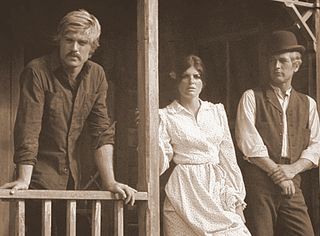I'm really sorry to have to do this, but. . .
By Nancy Pickard
I hope you'll forgive me, but I'm going to call you some bad words now. Oh, god. I feel terrible about this, but you deserve it, you really have it coming. Believe me, you'll be better for it when I'm finished. So don't hate me, okay? I'm only saying these things as your friend, for your own good. Okay. Deep breath. Ready? Here goes. . .
"You. . .you. . . reliable person you! You are talented and tremendous. . .and, and, and. . . influential!"
Offended yet? You would have been if you'd been the poet Coleridge back in 1832, when he proclaimed that the word "talented" was "barbarous." ( SUCH a great word and not used nearly enough outside of the British Parliament, imo. I'm going to email it to the President and suggest he find a place for it in his next address. "It's barbarous!" the President thundered! Okay, maybe this President wouldn't thunder, and since when did thunder become an intransitive verb anyway?) But I digress.
No, really, I don't digress, or at least not much, because this is about words that morph from one part of speech to another--morphing words, morphed words, morphly morphative morphonomous words. I made a few of those up, but which ones? And does anybody know what a "morph" is when it's at home? I think maybe it's a small furry caterpillar with an insecurity complex. . .or why else would it keep changing like that? 
The reason Coleridge loathed "talented"people was not professional jealousy. Or, at least, as far as I know, it wasn't, though you do have to wonder about a guy who thought opium was dandy but "talented" was uncivilized. Do you remember the legendary "Person from Porlock" who allegedly interrupted Coleridge as he wrote "Kubla Khan"? Maybe that Person from Porlock was talented, and that was what really pissed off the poet, ha.
But no. According to a recent article in the BBC News Magazine, Samuel Taylor Coleridge loathed the word because it was an abomination borrowed from us, the United Statesians. (That was for you Canadians who get sick of hearing us claim "American" all for ourselves.) We, you see, had morphed it from its proper "talent." One might have talent, but no lettered gentleman would use the vulgar, "talented." Similarly, one might exert influence, especially if one had attended Cambridge, but only the crass would describe a man as "influential." Shudder. I haven't found out why "tremendous" was so offensive, but I think it might be because its meaning had turned upsidedown at some point, morphing from something that was dreadful enough to cause trembling, to something great and glorious. The nerve of those language upstarts!
As for the dread "reliable," BBC Magazine says: "A letter-writer to the Times, in 1857, described 'reliable' as 'vile.'"
Ha! Perhaps the letter-writer was a young woman who liked Bad Boys.
Butch and Sundance. Unreliable as hell, and definitely not vile. :)
But we'd never do this, right? We'd never take umbrage (oooo, nice!) at mere morphages of words?
Maybe you wouldn't, but if I never hear "gift" used as a verb again in my lifetime I will consider it a gift.
"Darling, let me gift you with this toaster oven."
"Sweetheart, let me brain you with this club."
Do you have pet peeves about words that used to stand as straight and tall as a knight, words as good and pure as a Lady, and which have been dragged through the putrid slime of morphification? And if you don't, give us a poem, Mate, give us a poem, a poem with words, frabjous words!
In Xanadu did Kubla Khan
A stately Pleasure-Dome decree,
Where Alph, the sacred river ran
Through caverns measureless to man
Down to a sunless sea--
"Oh, Bloody hell!
"Jeeves?! Was that the bloody doorbell?"





